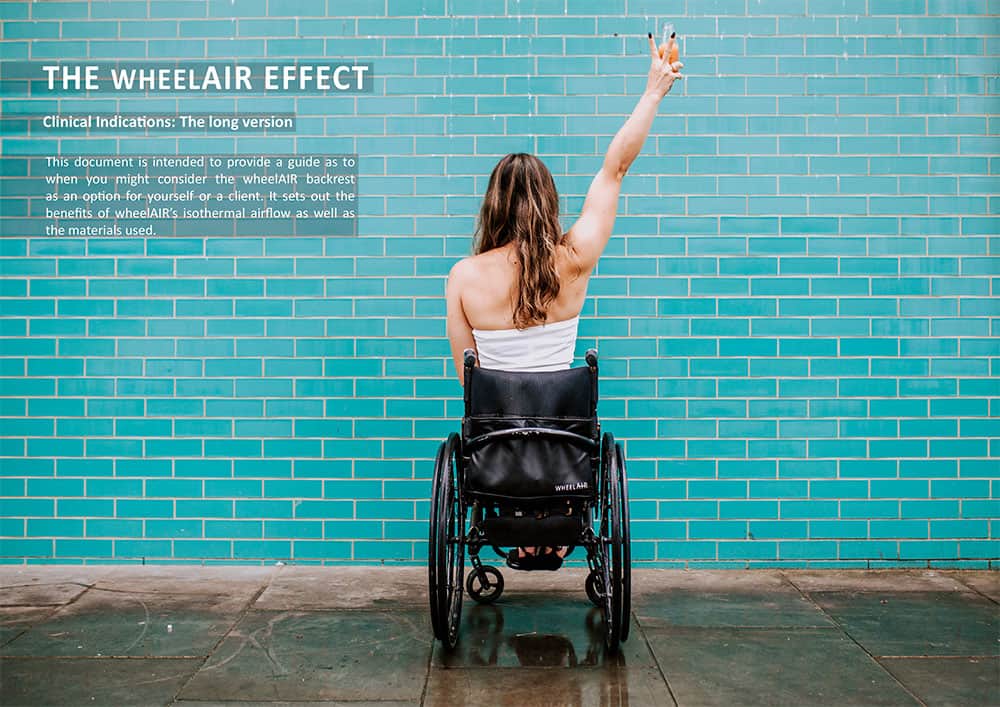Cooling backrest cushion backed by clinical evidence to demonstrate how it benefits users

wheelAIR has published a new clinical indications document, providing evidence to both clients and healthcare professionals that its cooling backrest cushion delivers positive results to individuals.
The wheelAIR is a cooling and supportive backrest cushion that keeps users cool and comfortable by tackling wheelchair users’ issues of over-heating, discomfort and sweating while in their chair.
According to wheelAIR, its users fall into one or more of the following groups: over-sweating, over-heating or general discomfort.
However, the backrest can help these three core groups by offering long-lasting and controllable isothermal airflow as well as enhanced back support to maximise independence and comfort.
The innovative cushion works best when it is used preventatively, ensuring the client’s back and body remains cool, while reducing fatigue and heat stress, and improving comfort.
Sophie Bevan, a user of the wheelAIR PRO, commented: “When you start to overheat, you get anxious and start to panic a little bit, as much you’re used to it happening, you have to remind yourself it’s okay.
“Having the wheelAIR is great because with the touch of a button, I know that in a few minutes, I will feel so much better.”
wheelAIR’s clinical indications document is intended to provide a guide to healthcare professionals as to when they might consider the wheelAIR for their clients, setting out the benefits of wheelAIR’s isothermal airflow as well as the materials used.
The clinical indications showed that, on average, wheelAIR users experience a seven percent decrease in back temperature within three minutes of using the cushion and a 16 percent decrease in back temperature after 30 minutes.
Commenting on the wheelAIR cushion, Occupational Therapist Susie Turnbull said: “As an OT, I want to enable someone to fulfill their life activities and get busy living.
“WheelAIR helps them feel more comfortable to live their daily life without interruption, without worry or anxiety about what their body is going to do that day, that’s a real bonus for their wellbeing and physical health.”

